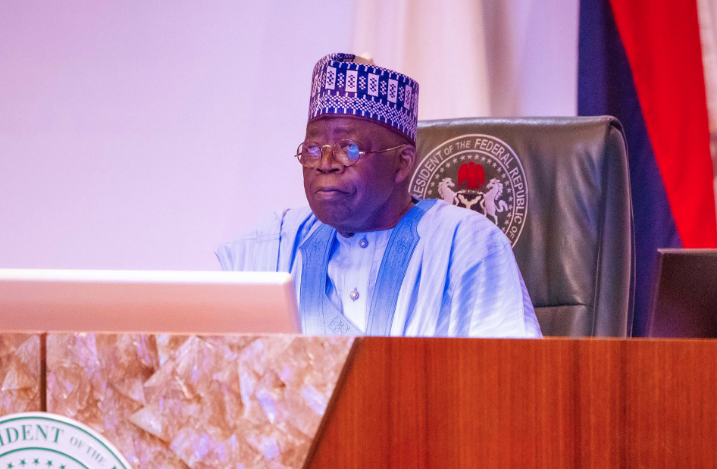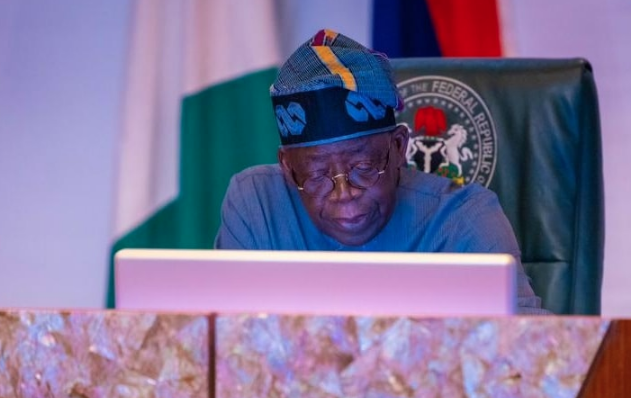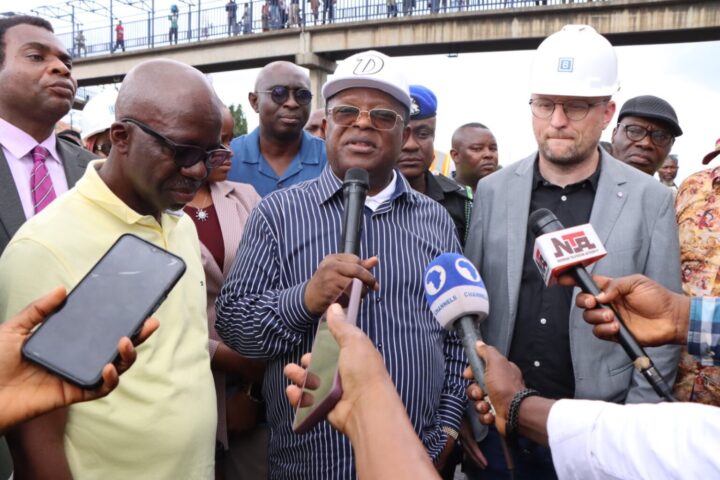President Bola Tinubu
BY ADAMU SALISU
When Nigeria’s President, Bola Ahmed Tinubu, assumed leadership of the country on May 29th, 2023, he pledged to hit the ground running. This promise quickly manifested in an array of activities, showcasing his allegiance to tackling long-standing challenges and laying the groundwork for Nigeria’s brighter future. His first major steps were the removal of the controversial fuel subsidy and the floating of the naira. These two decisive actions, which met with initial scepticism and resistance, have ultimately proven to be instrumental in breaking the shackles that held the country to ransom. The removal of the fuel subsidy, long seen as a drain on the nation’s resources and a breeding ground for corruption, was a bold move aimed at redirecting funds towards critical sectors such as infrastructure, healthcare, and education.
Similarly, the decision to float the naira was a necessary step towards achieving economic stability. By allowing the currency to fluctuate freely against other currencies, the government aimed to reduce reliance on foreign exchange reserves, encourage foreign investment and stimulate economic growth.
Undoubtedly, these decisions have elicited mixed reactions with many expressing concerns over price hikes and the general impact on the cost of living. In tackling the short-term effect of these policies, the administration swiftly allocated billions to State Governors to implement palliative measures to cushion the blow, particularly for low-income households. Furthermore, it approved the sum of N35,000 naira each to civil servants for six months to ease the cost of transportation in addition to setting up a committee for upward review of minimum wage. Aside that, the administration has initiated empowerment schemes for different demographics in line with its Renewed Hope Agenda.
Advertisement
Some of these are youth empowerment funds, skill acquisition grants, and support for agribusiness among others. There is also an ongoing plan to begin payment of N25,000 monthly stipend to youths that are unemployed. Notably, the ongoing clampdown on Bureau De Change (BDC) operators and other agents of economic sabotage has resulted in strengthening the naira against the dollar. All these plans are part of a comprehensive strategy to uplift Nigerians and create a conducive environment for economic growth and development.
While the short-term effects of the fuel subsidy removal and floating of the naira are currently being felt in terms of inflation and exchange rate volatility, the long-term benefits will surely lead to a resilient and productive economy. It is just a matter of time.
Beyond economic reforms, President Tinubu has also prioritised security, recognising the urgent need to address the threats posed by insurgency, kidnapping, banditry and other forms of criminality. Under his leadership, the Nigerian security forces have intensified operations against militant groups, reclaiming territories previously under their control and restoring a sense of security to affected regions.
Advertisement
Also, the President has shown a firm commitment to good governance and transparency by instituting measures to curb corruption and ensure accountability at all levels of government. To show his obligation to cut down the cost of governance, he ordered a 60 per cent reduction in his travel expenses and the number of officials on his entourage to any State and trips abroad. This measure, cuts across his office, the Vice President’s office as well as that of the First Lady and wife of the Vice President.
In addition to that, he recently approved the implementation of the Stephen Orosanye report which recommended the scrapping, submerging and subsuming of agencies particularly those with overlapping or similar responsibilities. This strategic move demonstrates President Tinubu’s resolve to streamline government operations, reducing redundancy and maximising efficiency in service delivery. By implementing these reforms, he aims to eliminate bureaucratic bottlenecks, improve accountability and ensure that public resources are utilised effectively for the benefit of all Nigerians. This approach underscores his vision and demonstrates agility and resolve to lead well.
In demonstrating his unwavering dedication to driving meaningful change, President Bola Ahmed Tinubu has swiftly taken action by signing several notable bills shortly after his inauguration. Among these pivotal legislations is the Electricity Act 2023, a groundbreaking move aimed at dismantling the monopoly within Nigeria’s electricity sector. This landmark legislation grants States, companies and individuals the autonomy to independently generate, transmit and distribute electricity, thereby fostering competition, innovation and improved service delivery nationwide. Likewise, President Tinubu has highlighted his zeal to enhance educational opportunities by enacting the Access to Higher Education Act. This transformative legislation introduces interest-free loans tailored to alleviate financial barriers that hitherto hindered individuals from pursuing higher education.
By providing equitable access to educational resources, the Government aims to empower Nigerian youth, cultivate a skilled workforce and foster socio-economic development across the nation. These strategic measures reflect the President’s proactive leadership style and his resolve to address key socio-economic challenges facing Nigeria. Through these policymaking and decisive actions, he endeavours to create an enabling environment conducive to growth, innovation and prosperity for all citizens.
Advertisement
Despite facing criticisms from some quarters, Mr Tinubu’s firm determination to implement these reforms exhibits his commitment to putting the country’s interests first and charting a new course towards prosperity. As Nigeria begins to reap the benefits of these bold and laudable initiatives, there should be a growing sense of optimism about her bright future under his leadership. Citizens have a duty to throw their weight behind the President given these uncommon innovations that are in the right direction.
Rather than criticise, lament, condemn or exploit the present situation to suit selfish interests, let us channel our energy into constructive solutions. Let us be encouraged to engage in meaningful dialogue, collaborate across divides and leverage our collective strengths to support the leadership of President Tinubu. With continued support and collective effort, Nigeria is poised to overcome its present challenges and emerge stronger than ever before.
Adamu Salisu is a public affairs analyst
Advertisement
Views expressed by contributors are strictly personal and not of TheCable.
Add a comment






